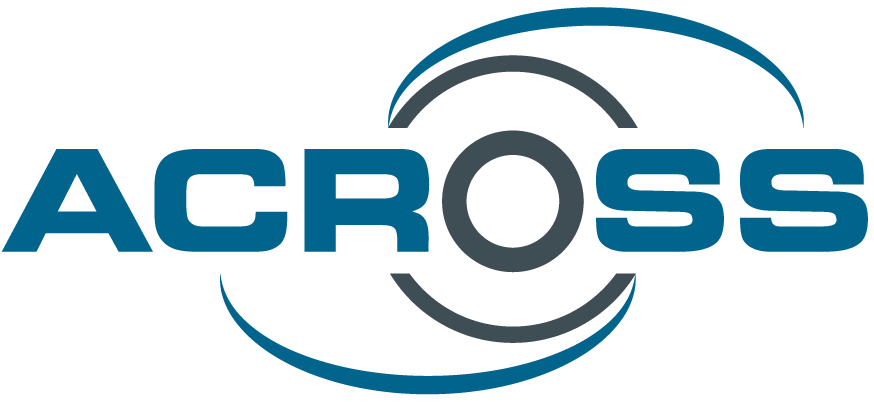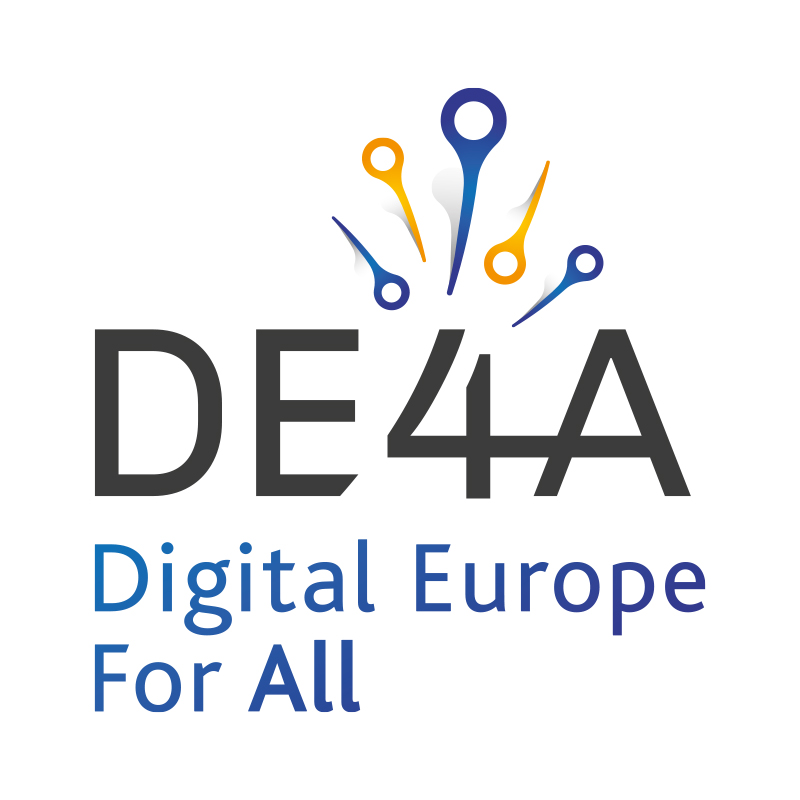
The main objective of the ACROSS project is to provide the means (tools, methods and techniques) that will enable user-centric design and implementation of interoperable cross-border (digital) public services compliant with the current European regulations (i.e. the Single Digital Gateway (SDG), “once-only” principle (OOP) and the European Interoperability Framework (EIF)). The private sector will be able to interconnect their services while ensuring the data sovereignty of the citizens, who can set the privacy level that, will allow the public and private sector to access their data based on their requirements.
To achieve these smart user-centric services, ACROSS will provide social and technical enablers integrated into an ecosystem, the ACROSS ecosystem, to co-design, co-create and co-deliver user-centric, accessible, interoperable (with other Public Administrations and with third-party private service providers) and regulation-compliant cross-border digital services, while assuring the (personal) data sovereignty and control to the citizens. ACROSS will support three countries at different points in their digital transformation journeys – Greece, Germany and Latvia – to address and analyze the technological, organizational, administrative, semantic and legal aspects, providing evidence for delivering more efficient cross-border mobility services to the citizens.
Spanning through three years ACROSS consists of a consortium of 10 partners from 7 countries: Athens Technology Center (co-ordinator), Tecnalia, Dataport, Engineering, Fraunhofer, GRNET, TimeLex, Lisbon Council, WAAG Society, VARAM.
The project kicked off its activities in February 2021.
For more information, you can visit: https://across-h2020.eu/
The project Digital Europe for All (DE4A) is a major three-year project, launched in January 2020 as a result of collaboration of 23 organizations from 9 countries of the European Union. The project is funded by the EU Horizon 2020 research and innovation Framework Programme and is aimed to create an inclusive digital Environment in Europe ensuring the Single Digital Market rights of citizens and businesses by building on secure, privacy-preserving and trustworthy realisation of fundamental once-only, relevant-only and digital by default principles. The DE4A large-scale pilot reinforces the connectivity of national digital endeavours and, building upon the existing infrastructure, it attempts to contribute to an overarching eGovernment network for Europe supporting parallel efforts from the EC and the Member States to realise the Once-Only Principle Technical System in compliance with Single Digital Gateway and aligned with EU eGovernment Action Plan 2016-2020, Tallinn Declaration and EIF Implementation Strategy. Achieving these objectives will be realised through three real-life crossb-order pilots, chosen from the SDGR fully online administrative procedures, that will validate the DE4A approach in real-life settings: Studying abroad, doing business abroad and moving abroad.
For more information, please visit our web site at European Single Market | Digital Europe For All (de4a.eu).

GLASS is a Horizon 2020 project funded by the European Union to create a new paradigm for the sharing and transfer of personal information, with the citizen in control. It will provide a distributed framework for sharing common services of public administrations across the EU for citizens, businesses, and governments. It started on January 1st 2021, and will complete its funded phase on December 31st 2023.
GLASS brings together recognized European SMEs and large enterprises, with universities and public authorities from all parts of Europe, to cooperate for the development of a novel e-Governance paradigm. The multi-disciplinary expertise of each organization, including big data analytics, distributed systems, blockchain, deep learning, innovation & project management, business development, risk management, legal compliance and eGovernment service delivery, as well as the active engagement with stakeholders and end-users throughout every phase of the project, creates a consortium capable of successfully delivering the expected outcomes.
GLASS introduces novel governance services facilitating free movement to citizens and businesses, producing strong social, societal, economic, technological, and scientific impact and leading to an advanced e-government solution aligned fully with the EU eGovernment Action Plan 2016-2020 and the EU Digital Single Market strategy.
For more information, you can visit: https://glass-h2020.eu

Innovating goverNment and ciTizen co-dEliveRy for the digitaL sINgle marKet ambition is to develop a new collaborative governance model that promotes the reuse and sharing of existing public services leveraging on the partnership between citizens, private actors, and public administrations.
INTERLINK will overcome the barriers that hinder administrations to share services with private partners (including citizens) by combining the advantages of two often opposed approaches:
INTERLINK proposes a new collaborative environment that will allow:
For more information, you can visit: https://www.INTERLINK-project.eu/.

The Once-Only Principle Project (TOOP) was launched by the European Commission in January 2017 as an initiative of about 50 organisations from 20 EU Member States and Associated Countries. The main objective of TOOP is to explore and demonstrate the once-only principle across borders, focusing on data from businesses. Doing this, TOOP wants to enable better exchange of business related data or documents with and between public administrations and reduce administrative burden for both businesses and public administrations.
TOOP implements multiple sustainable pilots by using a federated IT architecture on cross-border, pan-European scale. Its aim is to connect registries and e-Government architectures in 21 countries across Europe. The solutions will be based on already existing systems in Member States and Associated Countries.
Businesses will benefit from the solutions developed by TOOP as they will be able to fulfill legal obligations by reduced administrative burden, time- and cost-savings. At the same time, the data that have been provided to public administrations will always remain under full control and consent of the businesses involved, in line with EU data protection legislation. Administrations will achieve time and cost savings through administrative efficiency and will be able to offer improved service quality to businesses. Thus, administrations will profit from a better-functioning digital single market with increased customer satisfaction and a better image of public authorities.
ONCE-ONLY.ORG is an international non-profit association under Belgium law (AISBL) and implemented as part of the sustainability strategy for the TOOP project. The goal of the organisation is to facilitate and promote international cooperation of public and private stakeholders aiming to advance and enhance the once-only principle and other underlying principles for e-Governance and the interoperability solutions and practices that support them. Furthermore, the organisation shall ensure the sustainability of the tangible and intangible outcomes of the once-only principle project as well as to provide a supporting environment that enables piloting and further development of new technologies. The purpose is also to propose a framework that intends to achieve the sustainability goals by means of a methodology that integrates sustainability in both the planning and management tasks and that can serve as a basis for the implementation of an information system aligned with a business strategy.
For more information, you can visit: https://toop.eu/
